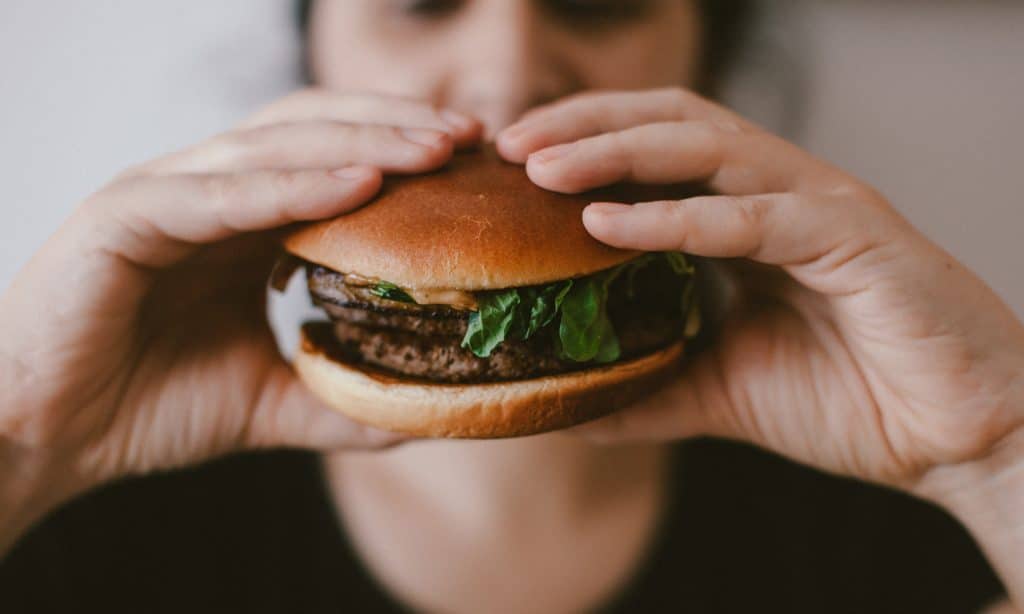Having stress for long periods of time pushes people to seek comfort, sometimes in the shape of fatty foods.
We eat for all sorts of reasons, sometimes not even because we’re hungry. How many times a day do you open your fridge, hoping to miraculously see something new and unexpected? Food is as much nourishment as it is a distraction. Eating habits steam from the desire to entertain ourselves, to manage our stress, to pass the time or to make ourselves feel good.
While there’s nothing wrong with loving junk food, having such a charged relationship to it does mean that in stressful situations you might find yourself with an increased appetite as a coping mechanism. These meals tend to be fatty ones, making you feel comforted and happy, because who’s ever had a stress salad?
RELATED: 5 Wellness Trends To Ditch In 2020
Here’s what you can do to temper these impulses and try to prevent stress eating:
Try identifying the source of your stress
If you feel that your increased eating patterns have an emotional hunger, try pinpointing the source. What’s going on in your life that’s currently affecting your emotions? Make a list of possible triggers, paying special attention to your relationships, work, health or financial issues.
Once you find the source of your anxiety, you can try to control this stress by meditating, working out more regularly or distracting yourself from food and whatever is bothering you problem.
Notice patterns
Try to pay attention to your relationship to food, noticing patterns in your behavior. Are you hungry or bored or anxious? Crazily enough, these pit of the stomach feelings can all blur together. When are you most likely to indulge in a snack? When does your hunger spike up?
An effective way of noticing these patterns is maintaining a food diary, writing down what and when you eat, and your levels of hunger.
Don’t deprive yourself of meals

RELATED: 4 Reasons Not To Start A Diet In January
Don’t try to convert this process into a weight loss program. Don’t deprive yourself of meals in hopes of managing your anxiety and losing weight simultaneously. Be patient with yourself and try to eat healthier. When eating, take the time to enjoy your food, chewing slowly and ensuring you’re satisfied by the end of the meal. Try to steer clear of binging patterns.
Keep hard to resist foods out of your house
Most people get food cravings when they’re bored, likely at home after they’ve completed the day’s tasks. Avoid temptations by keeping your home clear of snacks you love. It’s also important to have healthy food available. That way you’ll prevent yourself from ordering in or buying unhealthy snacks because you feel like there’s no other option.
Get help
If your stress eating is becoming a concern for you, reach out to someone you trust or look for online resources. There are plenty of support groups that can be used as spots to vent and that can connect you with experts and therapists.


